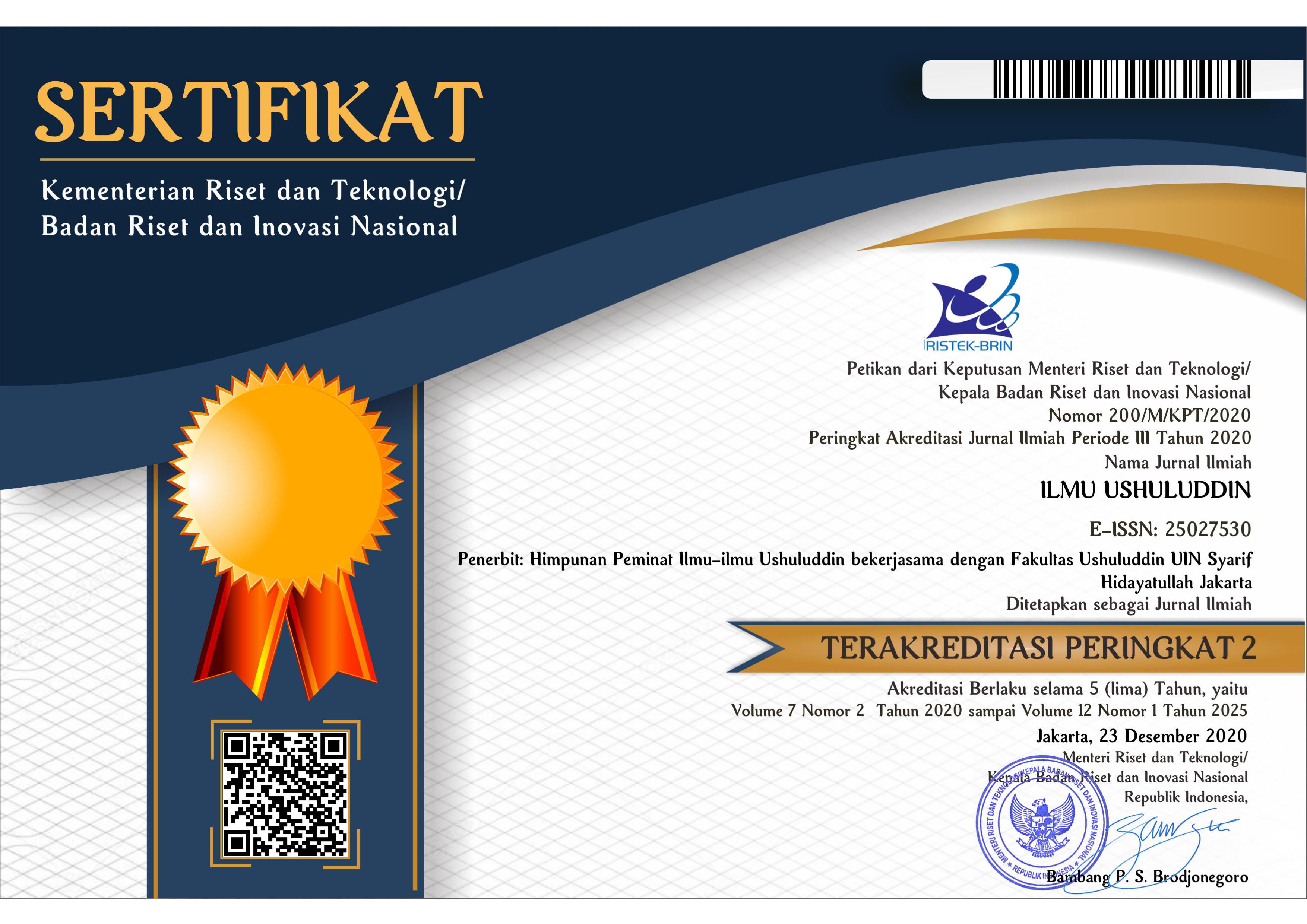Colonialism and Islamic Modernism: Differences in the Development Paths of Islamic Boarding Schools in Indonesia
DOI:
https://doi.org/10.15408/iu.v10i2.39189Keywords:
Islamic Modernism, Islamic Thought, Mesir, IndonesiaAbstract
Islamic modernism emerged in the 19th and early 20th centuries as a response to global challenges, aiming to blend Islamic values with modern elements like science and technology. It spread globally in response to colonialism and modernization. In Indonesia, it developed during the transition to democracy, with regional autonomy leading to the implementation of Sharia in local regulations. Some radical groups in Indonesia sought to establish a strict Islamic state, driven by motives like the desire for a caliphate. In response, a liberal Islamic movement emphasizing contextual interpretations emerged. Islam Nusantara, represented by NU, exemplifies a moderate and tolerant form of Islam. Religious moderation is seen as an alternative to balance extreme interpretations, focusing on tolerance, democracy, and the rejection of violence. This article will delve into the journey of Islamic modernism, starting from its pioneers in Egypt and extending to Indonesia, where debates and developments in religious thought have become significant stages
References
Abbas, Megan Brankley. Whose Islam?: The Western University and Modern Islamic Thought in Indonesia. Stanford University Press, 2021.
Aishima, Hatsuki. “Shaping Global Islamic Discourses: The Role of Al-Azhar, Al-Madinah and Al-Mustafa.” edited by Keiko Bano, Masooda and Sakurai, 58.4:510–511. Die Welt des Islams, 2018.
Aljunied, Khairudin, and Khairudin Aljunied. “Bringing Rationality Back : Harun Nasution and the Burden of Muslim Thought in Twentieth-Century Southeast Asia.” ournal of Islamic and Muslim Studies 6, no. 1 (2021): 29–55.
Anwar, M. Syafi’I. Pemikiran Dan Aksi Islam Indonesia: Sebuah Kajian Politik Tentang Cendekiawan Muslim Orde Baru. Paramadina, 1995.
Arifianto, Alexander R. “Rising Islamism and the Struggle for Islamic Authority in Post-Reformasi Indonesia.” TRaNS: Trans-Regional and -National Studies of Southeast Asia 8, no. 1 (2020): 37–50.
Asrori, Saifudin. “Mengikuti Panggilan Jihad; Argumentasi Radikalisme Dan Ekstremisme Di Indonesia.” Aqlam: Journal of Islam and Plurality 4, no. 1 (2019): 118–133.
———. “Modal Sosial Dan Dialog Antar Agama; Strategi Peningkatan Harmoni Antarumat Beragama Di Indonesia.” Jurnal Penamas 32, no. 2 (2019).
Asrori, Saifudin, and Amsal Bakhtiar. “Articulating Takfir: Ayman Al-Zawahiri and the Global Jihad Ideology.” Epistemé: Jurnal Pengembangan Ilmu Keislaman 16, no. 2 (2021).
Azra, Azyumardi, and Harun Nasution. Perkembangan Modern Dalam Islam. Jakarta: Yayasan Obor, 1985.
Barton, Greg. “Indonesia’s Nurcholish Madjid and Abdurrahman Wahid as Intellectual Ulama: The Meeting of Islamic Traditionalism and Modernism in Neo‐modernist Thought.” Islam and Christian‐Muslim Relations 8, no. 3 (1997): 323–350.
Van Bruinessen, Martin. Contemporary Developments in Indonesian Islam, Explaining the “Conservative Turn,” 2013.
Bruinessen, Martin Van. “Liberal and Progressive Voices in Indonesian Islam.” In Reformist Voices of Islam : Mediating Islam and Modernity, edited by Shireen Hunter. M.E.Sharpe, 2009.
Eposito, J.L, and O. J Voll. Makers of Contemporary Islam. New York: Oxford University Press, 2011.
El Fadl, Khaled Abou. The Great Theft: Wrestling Islam from the Extremists. San Francisco, 2005.
Giddens, Anthony. The Consequences of Modernity. John Wiley & Sons, 2013.
Hourani, Albert. Arabic Thought in the Liberal Age 1798-1939. Cambridge University Press, 1983.
———. The Emergence of the Modern Middle East. Univ of California Press, 1981.
Hunter, Shireen. Reformist Voices of Islam: Mediating Islam and Modernity. Edited by Shireen Hunter. ME Sharpe, 2009.
Ibrahim, Raymond. The Al Qaeda Reader: The Essential Texts of Osama Bin Laden’s Terrorist Organization. Edited by Raymond Ibrahim. Crown, 2007.
Karakaya, Suveyda and A. Kadir Yildirim. “Islamist Moderation in Perspective: Comparative Analysis of the Moderation of Islamist and Western Communist Parties.” Democratization 20, no. 7 (2013): 1322–1349.
Kato, Hisanori. “The Islam Nusantara Movement in Indonesia.” In Handbook of Islamic Sects and Movements, 110–128. Brill, 2021.
Kurzman, Charles. Liberal Islam, A Sourcebook. New York & Oxford: Oxford University Press, 1998.
———. Modernist Islam, 1840-1940: A Sourcebook. USA: Oxford University Press, 2002.
Machmudi, Yon. Islamising Indonesian: The Rise of Jemaah Tarbiyah and the Prosperous Justice Party (PKS). Canberra: ANU Press, 2013.
Madjid, Nurcholish. “Islalmic Roots of Modern Pluralism; Indonesian Experiences.” Studia Islamica Vol. 1, (1 (1994): 55–77.
———. Islam, Kemodernan Dan Keindonesiaan. Bandung: Mizan, 1993.
Makruf, Jamhari, and Saifudin Asrori. “In the Making of Salafi-Based Islamic Schools in Indonesia.” Al-Jami’ah: Journal of Islamic Studies 60, no. 1 (2022): 227–264.
Masud, Muhammad Khalid. “Islamic Modernism.” In Islam and Modernity: Key Issues and Debates: Key Issues and Debates, edited by Muhammad Khalid Masud, Armando Salvatore, and Martin Van Bruinessen. Edinburgh University Press, 2009.
Moaddel, Mansoor. “Conditions for Ideological Production: The Origins of Islamic Modernism in India, Egypt, and Iran.” Theory and Society 30 (2001): 669–731.
———. Islamic Modernism, Nationalism, and Fundamentalism: Episode and Discourse. University of Chicago Press, 2005.
Mujani, Saiful. “Mu ‘tazilah and the Modernization of the Indonesian Muslim Community: Intellectual Portrait of Harun Nasution.” Studia Islamika 1, no. 1 (1994).
Munhanif, Ali. “Prof. Dr. A. Mukti Ali: Modernisasi Politik-Keagamaan Orde Baru.” In Menteri-Menteri Agama Republik Indonesia, edited by Saiful Umam and Azyumardi Azra. Jakarta: Indonesian-Netherlands Cooperation in Islamic Studies (INIS), Pusat Pengkajian Islam dan Masarakat (PPIM), Badan Litbang Agama, Depertemen Agama RI, 1998.
Nasution, Harun. Islam Di Tinjau Dari Berbagai Aspeknya, Jilid II. Penerbit Universitas Indonesia, 1985.
Ollapally, Deepa Mary. The Politics of Extremism in South Asia. Cambridge University Press, 2008.
Rahman, Fazlur. Islam and Modernity: Transformation of an Intellectual Tradition. University of Chicago Press, 1984.
Saenong, Faried F. “Nahdlatul Ulama (NU): A Grassroots Movement Advocating Moderate Islam.” In Handbook of Islamic Sects and Movements. Brill, 2021.
Saleh, Fauzan. Modern Trends in Islamic Theological Discourses in 20th Century Indonesia; a Critical Survey. Brill, 2001.
Sánchez-Cuenca, Ignacio. “The Logic of Party Moderation.” Centro de Estudios Avanzados en Ciencias Sociales.Instituto Juan March de Estudios e Investigaciones 135 (1999).
Schwedler, Jillian. “Can Islamists Become Moderates: Rethinking the Inclusion-Moderation Hypothesis.” World Pol 63, no. 347 (2011).
Shepard, William E. “Islam and Ideology: Towards a Typology.” International Journal of Middle Eastern Studies 19 (1987): 307–335.


